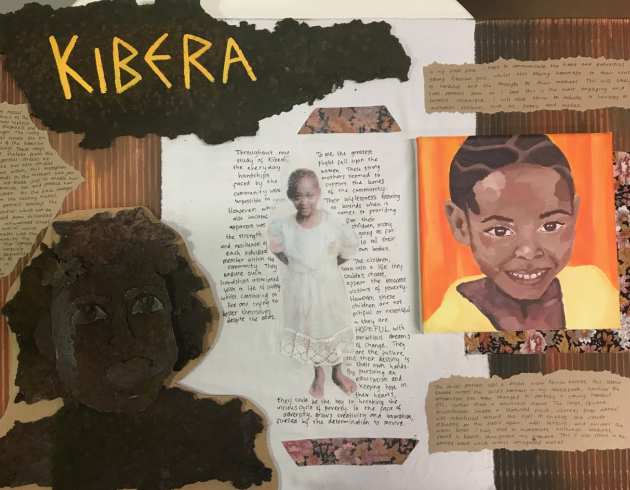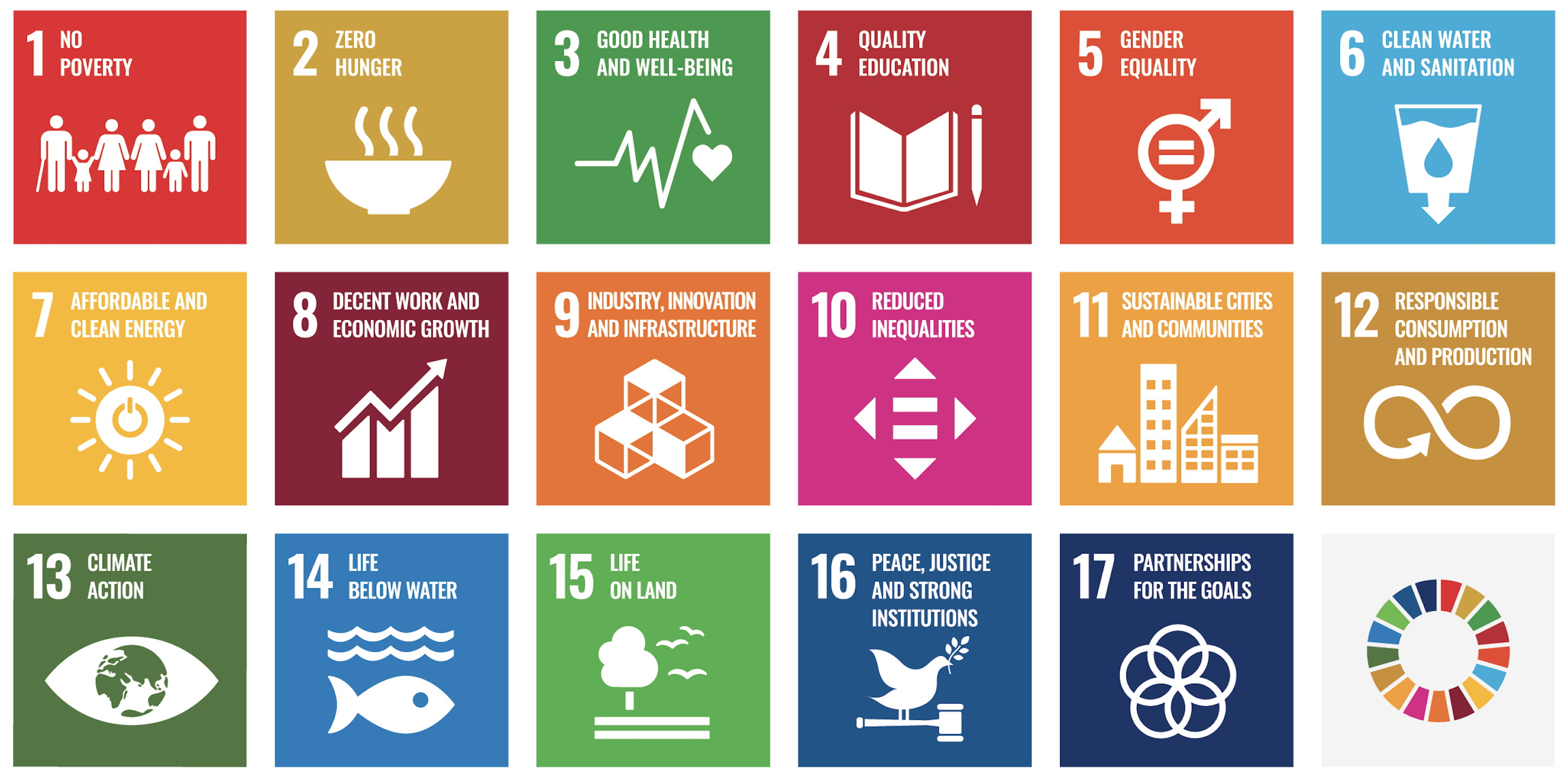Global Village: Visual Arts Challenge

Explore sustainable development issues within a specific community and create an art exhibit inspired by that community
Module details
- Offered to 2nd Years
- Mondays 16.00-18.00
- Planned delivery: On campus (South Kensington)
- Two-term module, worth 5 ECTS
- Available to eligible students as part of I-Explore
- Extra Credit, or Degree Credit where your department allows
This module provides you with the opportunity to explore the complex topic of international development through an arts project.
You will conduct a thorough analysis of a real-world case study community, using social science approaches such as soft systems methodology. Issues related to the communication of development will be explored and you will use a sketchbook and mood board to help develop your conceptual thinking.
Ultimately, you will produce a piece of artwork related to sustainable development.
Global Village: Visual Arts Challenge
Explore sustainable development issues within a specific community and create an art exhibit inspired by that community.
Published on May 23, 2022
Listen to Dr Mark Pope talking about the Global Village: Visual Arts Challenge module
Information blocks
Learning Outcomes
On successful completion of the module, you will be better able to:
- Understand the complexity of trying to define development or poverty, and the implications this has for planning interventions
- Use soft systems methodology to explore a case study community and identify issues that could be addressed
- Critically evaluate the complexities of communicating topics like international development, including the use of imagery to communicate additional meaning
- Research and then articulate a variety of different perspectives held by stakeholders in a local community in a foreign country
- Create a representational piece of art work to communicate issues related to the case study community, drawing on perspectives from disciplines and cultures that might be new to you
- plan, monitor and review your progress as an independent learner, acknowledging the value of your own unique contributions to both individual and group work
Indicative core content

During this module, you will use several different methodologies and techniques to explore a real-world case study community that is experiencing some for of deprivation or poverty. You will be supported to find out as much as you can about the community whilst respecting their privacy and dignity. You will also be encouraged to consider what you are not able to know, and keep this awareness in your consideration of the community.
You will engage with a number of creativity techniques to help you broaden your awareness and personal response to the issues faced by the community. You will develop an artistic response to the community and/or the key issues facing the community.
Initially, you will be supported to translate your more literal research into a visual palette of ideas, before developing a final artwork. You will have the opportunity to reflect on both your own artwork and those of your colleagues.
What happens in this module?
What you will learn
- A method to research a community and to help you explore issues that could inspire your artwork.
- The complexities of communicating on topics related to international development through artwork.
- A creative process to follow, including how to annotate sketches, develop your ideas, exhibit your work and finally reflect on the whole experience.
What you will do
- Research the case study community in teams, sharing your findings visually with other students.
- Put together a sketchbook and mood board of ideas for artwork inspired by the case study community.
- Create a final art piece inspired by the community and exhibit this work to other students in the class.
Learning and teaching approach
An active learning approach is achieved with the use of workshop sessions and practical activities to help you unpack complex theoretical ideas. There is individual work, small group work, peer evaluation and support. You will conduct library and empirical research to support your understanding of a real-world case study.
The module progresses with opportunities for self, peer and lecturer formative and summative evaluation and all feedback is provided within seven days and is dialogic in nature.
You will be offered opportunities to reflect on the skills that you are developing and to consider how they might be transferable to your core studies.
You will be encouraged to incorporate your personal experience and interests into your work, and are supported to ensure that this is inclusive. The module is supported by our interactive handbook and our virtual classroom.
You will receive ongoing formative feedback on your progress, and written feedback and provisional marks for your submitted assessments within two term-time weeks of submission. Dialogic written feedback is provided for each assignment. As part of the feedback process, you will be asked to write a response to the feedback, which is reviewed by the lecturer. In addition, you can sign up for further individual support if required.
Mapping the Sustainable Development Goals (SDGs) in this module
We recognise the interrelated nature of the UN Sustainable Development Goals (SDGs) and do not consider individual SDGs in isolation. We adopt a systems-based approach that recognises their cross-cutting nature. Therefore, on this module, your research on a case study community will be related to a number of the SDGs.
You will also choose the focus of your final art project and this will give you the opportunity to focus on any intersection of SDGs. For example, in previous years, students have focused on the following SDGs with their choice of projects:
An art project depicting a range of flora and fauna that are threatened by anthropogenic interference:
- SDG 14 Life Below Water (through focus on threats to marine life)
- SDG 15 Life on Land (through focus on trees and plants)
- SDG 11 on Sustainable Cities and Communities (by prompting consideration of how humans can cohabit spaces with plants, trees and animals)
An art project that highlighted the value of collaboration between stakeholders on a local and international scale:
- SDG 10 on Reduced Inequalities (by stressing the need to empower and include all stakeholders)
- SDG 17 on Partnerships for the Goals (by highlighting the potential for international partnerships)
- SDG 4 on Quality Education (by recognising the importance of ensuring everyone has the education and skills to fulfil their potential to contribute to collaborative projects)
An art project that depicts the challenges that immigrants face in adapting to a new home in the UK:
- SDG 2 Zero Hunger (through recognition of the challenges faced by asylum seekers when searching for affordable and nutritious food).
- SDG 7 on Affordable and Clean Energy (through a recognition of the unaffordable price of energy for many people).
- SDG 11 on Sustainable Cities and Communities (by prompting consideration of the need for communities to be inclusive of asylum seekers and refugees).
You will not be limited to addressing the SDGs highlighted here. Your work could touch on others, depending on the project that you choose to pursue.

Assessment
- Practical: Rich Pictures with Team Video Summary (20%)
- Practical: Conceptual Designs - Sketchbook and Mood Board (15%)
- Practical: Final Exhibition Artwork (50%)
- Coursework: Final Exhibit Report (15%)
This module follows an authentic assessment protocol. You will be supported to work through an arts project, where each step of the project is individually formatively and then summatively assessed. You will be given time in class to complete all the components of the assessments. The assessment is staggered to reduce the impact on you and reduce the end-of-module burden. You will have the opportunity for formative peer feedback for each assessment element.
Key information
- Requirements: You are expected to attend all classes and undertake approximately 85 hours of independent study in total during the module. Independent study includes reading and preparation for classes, researching and writing coursework assignments and preparing for other assessments.
- This module is designed as an undergraduate Level 5 module. For an explanation of levels, view the Imperial Horizons Level Descriptors page.
My Journey
Case studies have previously focused on East Timor, Viet Nam, Cameroon, Peru, Kenya, India, South Africa and Australia. Past exhibits have included drawings, paintings, animations and sculpture.
See more exhibits from previous students.
The Effects of Synthetic Biology on Society (no sound)
"I love making art and expressing concepts and challenges in a creative, abstract way. Medicine doesn't leave a lot of free time for it though, so it was brilliant to have an excuse to spend time on art!"
"It was a stress relief during a week packed with lectures to do something I enjoy as a hobby but applying that for a meaningful cause."
The course has been extremely enjoyable. I have learnt a large variety of skills and have a deeper insight into the Lobitos community in Peru."
"The experience of exhibiting my work was hugely valuable to me."




